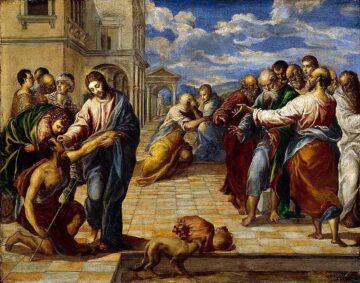Henry Oliver in The Common Reader:
 Here are four ideas I have long nurtured as suspicions for what makes the most productive people quite so successful, inspired by a recent conversation I had that I’m hoping to bring to you soon. Many people will have aspects of more than one of these criteria—Beethoven, for example.
Here are four ideas I have long nurtured as suspicions for what makes the most productive people quite so successful, inspired by a recent conversation I had that I’m hoping to bring to you soon. Many people will have aspects of more than one of these criteria—Beethoven, for example.
- Instability. Think of the most prolific writers—D.H. Lawrence (seventy-five volumes), Charles Dickens (thirty volumes), Samuel Johnson (twenty-three volumes, plus a whole dictionary and edition of Shakespeare)—and you think of people who are, in some way, mentally unsettled. The recent Joyce Carol Oates profile reinforced this to me. And I learned that Gwern thinks partial mood disorder is behind some people’s productivity.
- Death (and God). John Stuart Mill (thirty-three volumes) was spurred into the late work (On Liberty, Autobiography, Subjection, &c.) by a death scare in 1854. He wrote in his diary that the night cometh when no man can work, a bible quotation which Johnson once had carved on his watch. The most prolific composer, J.S. Bach, might not have been unstable (who knows?), but he wrote for God, and the Lutheran church emphasises preparing for death. Michelangelo was always working to the glory of God, preparing his soul (factor in his work running the building site at St. Peters and he gets way more productive: that building wouldn’t exist without his project management). Montaigne wrote his essays because he was running out of time.
More here.
